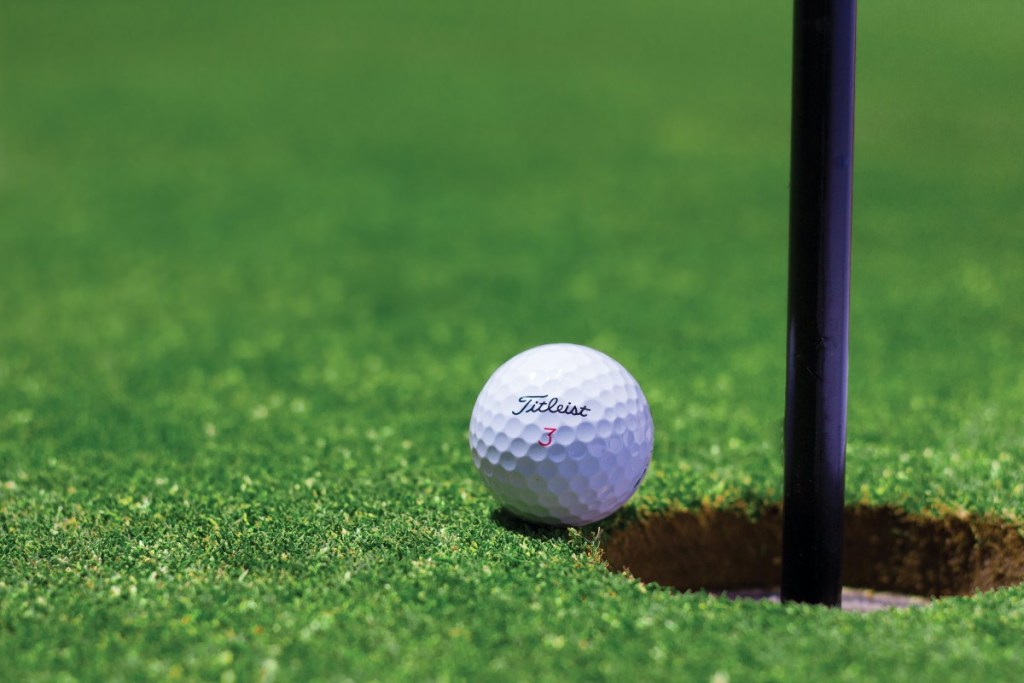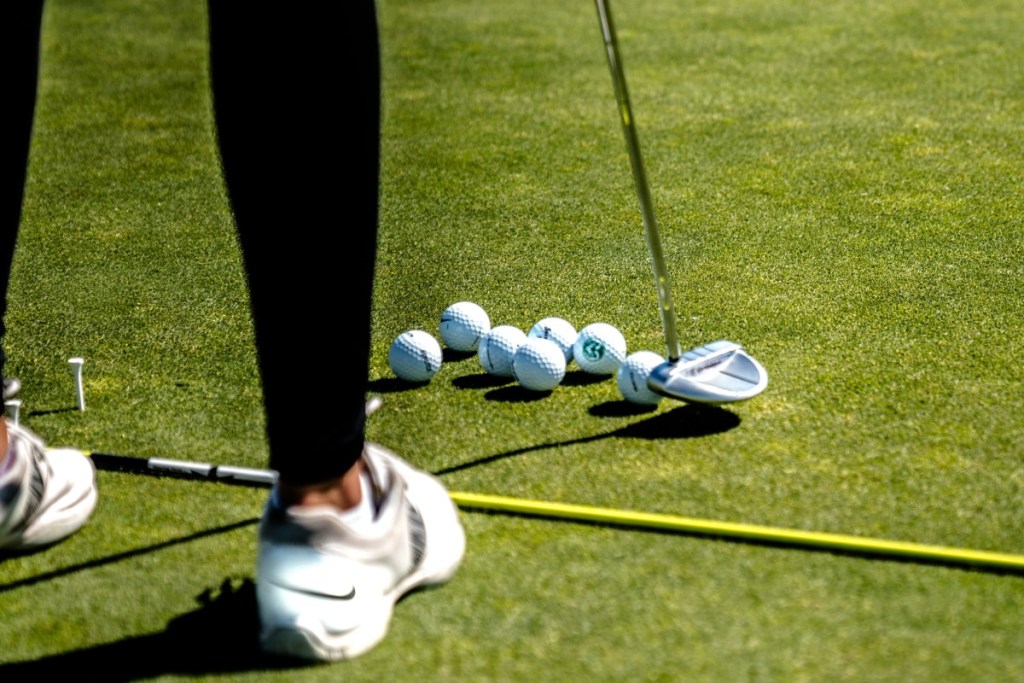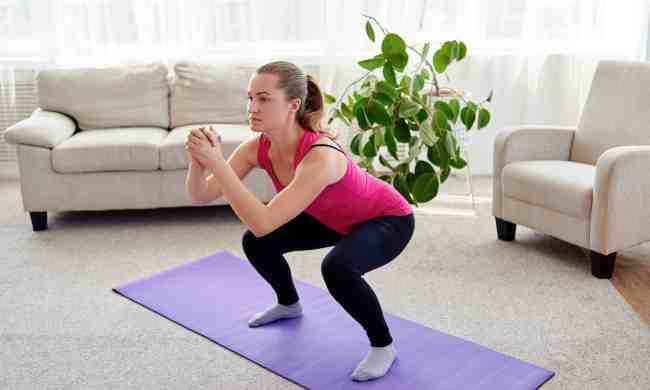As the weather warms, we can just about hear the green calling our name: It’s golf season again. Beyond being a mental and physical exercise that trains balance, strength, and focus, this sport also offers many benefits to your mental health. Though golf isn’t as high-impact as running, it’s still exercise, and physical activity can greatly reduce stress.
The key is to keep golf fun and relaxing, though, sort of like yoga. While a little friendly competition is always encouraged, don’t get too discouraged if you have a bad day on the course. If you’re ready for a relaxing morning on the green, check out these few tips and tricks to destress with some golf.

Start small
If you’ve never played golf before or don’t play often, playing all 18 holes may feel overwhelming. It’s a long day, it may take you longer than expected to get the ball in the hole, and walking the entirety of the course can get very tiring very quickly. Not to mention, beginners at any hobby find that feeling unsure of their abilities and overextending themselves are common stressors.
Instead of doing the whole shebang, consider opting for nine holes instead of 18, or spend the afternoon working on your swing at the driving range. Starting small can reduce the stress that comes with trying to take on too much at once. However, it’s always helpful to have goals to look forward to, so if you’re interested in completing a full course, keep up the practice and work your way up to that incrementally.
Play mini-golf instead
If you’d rather not hit a true course but still want to play 18 holes, throw it back to your childhood days with a round of mini-golf. Mini-golf courses offer putting greens with fun themes and obstacles at each hole, like faux-ponds and windmills, for an extra challenge, so it’s a little more entertaining than its full-size counterpart.
Mini-golfing is a great way to have fun and socialize outdoors with family and friends, providing massive stress relief. What’s more, experts say there are benefits to engaging in physical activity with others. Having others around during a workout can help you capitalize on your endorphins, find support, and feel a sense of camaraderie, even if you’re competing with one another.

Don’t keep score
Golf courses, including mini-golf courses, often give you a scorecard, and this competition can actually make it more fun. Tracking your scores is also a great way to measure your own progress, seeing how you’ve improved over time.
However, if you’re typically a perfectionist and just starting out, you might want to ditch the scorecard, as perfectionism often adds to stress. Keep in mind that a score is just a number. If you’re using golf to de-stress, your real goal is to have a relaxing day, not qualify for the Masters. Over time, you might consider starting to keep score, but it’s definitely not necessary if you aren’t planning to compete.
Take a golf lesson
Whether you’re a semi-pro or just starting out, taking a lesson can up your game and your mood since learning something new is a highly effective stress relief technique. If you’re more experienced, meet with a golf pro to train a certain area of your game that you want to improve, like a bank shot. Newcomers can learn basic skills and lingo to increase their comfort on the course as well.
Many courses have instructors, and some have even played on the PBA tour. Call your local golf course to see if they offer lessons, and don’t forget to peruse Groupon, where you can find lessons, and a variety of other offerings, at a reduced rate.
Golf benefits are enumerable. The game gets you outdoors and your mind off your everyday stressors, releasing feel-good endorphins that regulate anxiety and depression. This can be a frustrating sport though, so take it easy, keep it fun, and play with friends and family to better enjoy the experience. Next time you want to spend the day soaking up the sun, consider swapping out a beach day for a morning on the green. Get ready to lace up those golf shoes, and we’ll meet you on the course!
BlissMark provides information regarding health, wellness, and beauty. The information within this article is not intended to be medical advice. Before starting any diet or exercise routine, consult your physician. If you don’t have a primary care physician, the United States Health & Human Services department has a free online tool that can help you locate a clinic in your area. We are not medical professionals, have not verified or vetted any programs, and in no way intend our content to be anything more than informative and inspiring.



